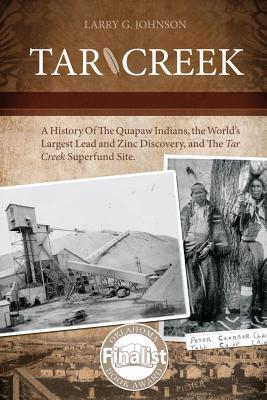Tar Creek - A History of The Quapaw Indians, the World's Largest Lead and Zinc Discovery, and The Tar Creek Superfund Site.
When this book was conceived, it was intended as a straightforward recounting of the story of the world's greatest discovery of lead and zinc located in the far northeast corner of Oklahoma. I soon realized that this 1915 discovery was strongly linked to prior as well as current events and that those events should be a part of the story. Because of the interconnectedness of the present with the past, the story grew and quickly encompassed the Quapaw Indians and their ancient history, the founding of the United States, the Louisiana Purchase, the transition of Oklahoma and Indian Territories to statehood, the discovery and mining of lead and zinc in the Tri-State region, and the making of the oldest and largest environmental Superfund site in America.
This book does not claim to do justice to any of these topics but attempts to tell an interesting story from a perspective not seen before. Parts of the book deal with grand themes and momentous events. Other chapters deal with the mundane and minutia of life in frontier mining camps. As time progresses, some of the events and players in our story rise to prominence and then recede into obscurity. Other seemingly insignificant actions and events create ripples that become waves that become tsunamis that etch a lasting mark on the shores of history.
The discovery of lead and zinc deposits in 1915 on the Quapaw Reservation at Picher, Oklahoma, serves as the focal point of the book. Several events and links to the past preceding the discovery are chronicled. Events and actions from that discovery to the present are also noted. One might visually describe this story as an hourglass with the discovery of lead and zinc at Picher as the skinny neck through which all of the interconnected acts and events preceding the discovery (the top half of the hourglass) are slowly moving toward (causing or impacting) that discovery. The bottom half of the hourglass is literally the fallout from the discovery or, as one might put it, the repercussions ninety years later.
Larry G. Johnson
